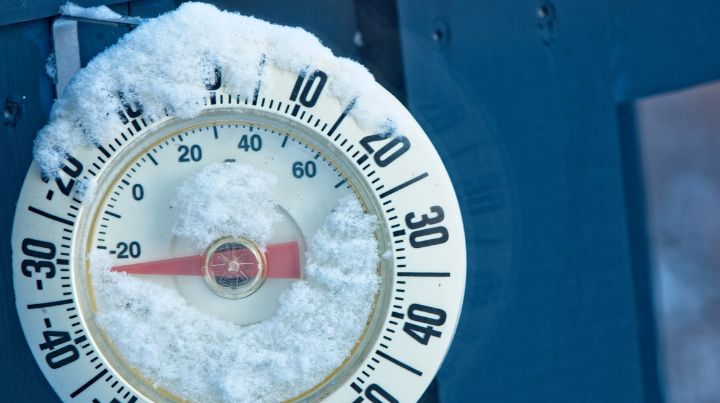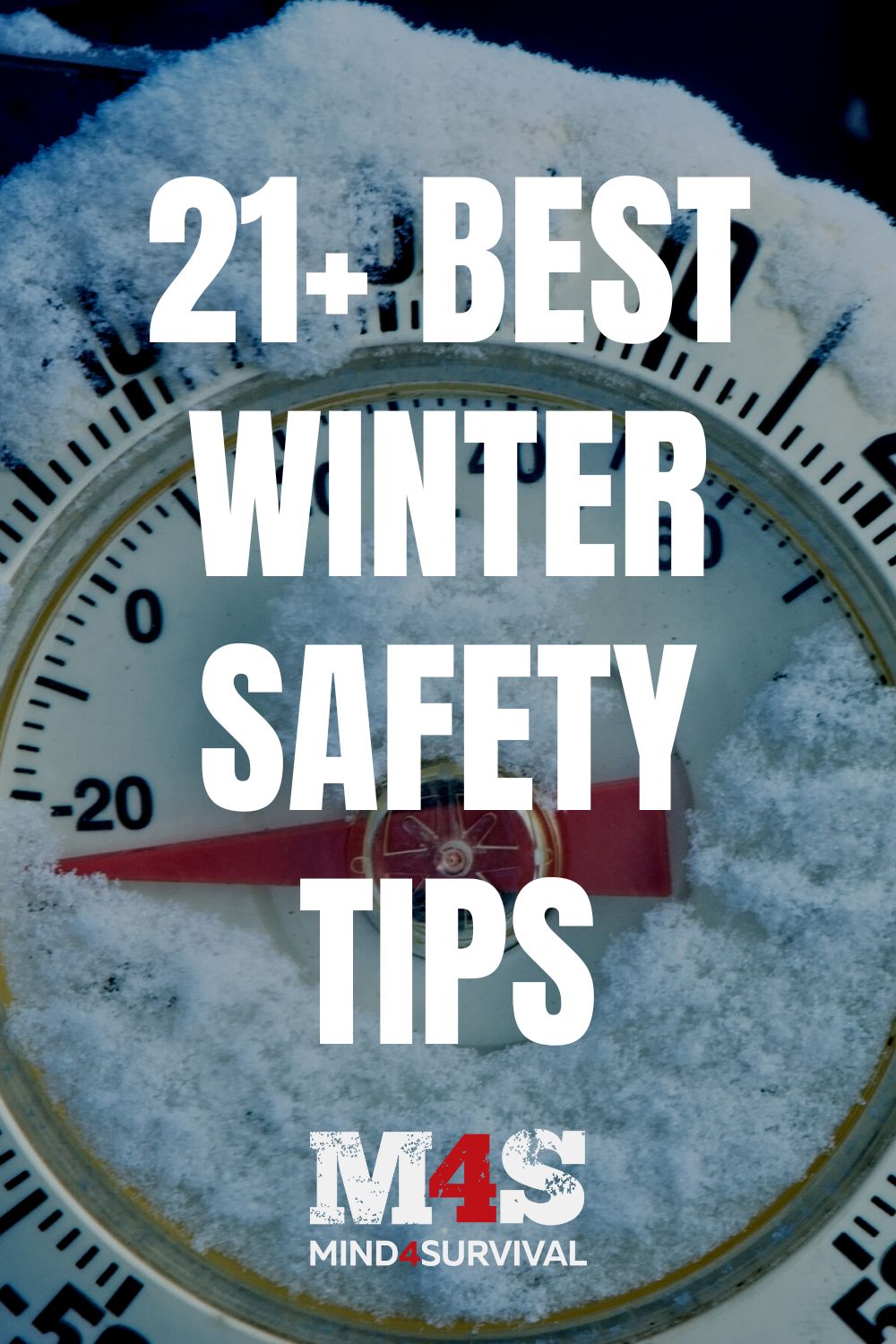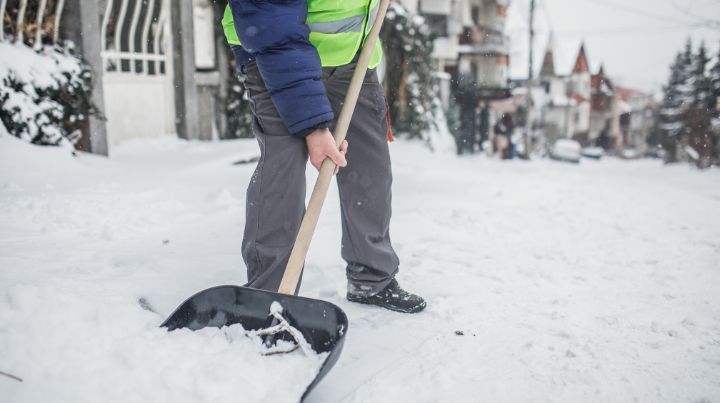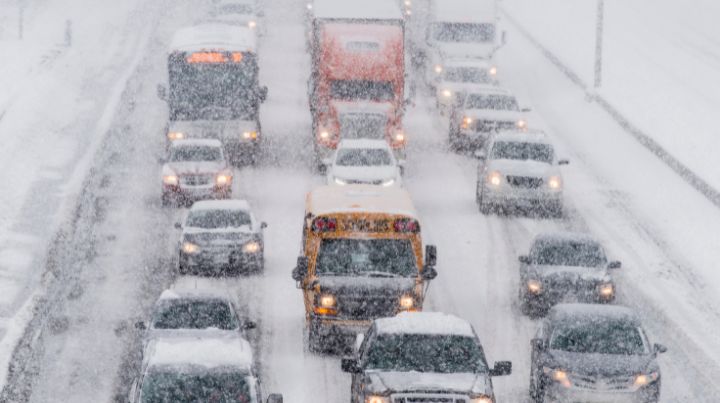21+ Best Winter Safety Tips For Cold Weather Survival

Winter is a beautiful time of year, but it can also be deadly if you’re not prepared. Every year, hundreds of people die from hypothermia, frostbite, and other cold-related injuries. Don’t let yourself be one of them!
Follow these 21+ best winter safety tips, and you’ll be able to enjoy the cold weather without putting your life at risk. So what are you waiting for? Bundle up, and let’s get started!
Situational Awareness
1. Monitor the Weather Forecast and Plan Accordingly
Cold weather hazards can be unpredictable, but it’s important to stay informed and plan accordingly to ensure winter safety. One way to do this is by monitoring the weather forecast for any winter weather advisory, such as a winter storm warning or winter storm watch. This way, you can be prepared for whatever conditions may arise, whether it’s a winter storm or simply colder than usual temperatures.
Self-Defense
2. Limit Time Outdoors in Extremely Cold Weather
When winter weather sets in, it’s important to take extra care to stay safe and limit your time outdoors in extremely cold conditions. Prolonged exposure to cold temperatures during a winter storm can cause frostbite, which is when the skin and tissue freeze.
Symptoms of frostbite include numbness, tingling, and red or pale skin. In severe cases, frostbite can lead to tissue damage and gangrene. Spending time outdoors in extremely cold weather can also put a strain on your heart, so if you have a heart condition, it’s especially important to be cautious. By taking winter safety precautions and limiting your time outdoors in extremely cold weather, you can help protect yourself from weather-related health risks.
3. Bundle up Before Going Outside in Cold Weather
Winter safety is very important. When it’s cold outside, you need to make sure you’re properly bundled up in warm clothing before you go outdoors. This means wearing layering clothing to protect yourself from the cold. Outerwear items, such as coats and gloves, are also important in inclement weather.
Wearing proper winter clothing can help you stay warm and dry and prevent frostbite and other cold-related injuries. So before you head out into the cold this winter, make sure you’re properly dressed for the occasion.
Oxygen (Health)
4. Drink Plenty of Fluids to Stay Hydrated and Avoid Getting Sick
As the temperatures start to drop, it’s important to remember to stay hydrated. While we think of dehydration as a summertime problem, it’s just as common in winter.
Cold weather makes us less likely to drink fluids, but our bodies still need just as much water. In fact, dehydration can actually make us more susceptible to colds and other illnesses. Staying hydrated helps to keep our bodies functioning properly and our immune systems strong. So next time you reach for a cozy sweater, don’t forget to grab a glass of water too. It might just help you avoid getting sick this winter.
5. Know the Signs of Frostbite and Hypothermia
As winter sets in, it’s important to be aware of the dangers posed by cold weather. Frostbite and hypothermia are both serious conditions that can occur when exposed to extreme cold, and it’s crucial to know the signs and symptoms of each. Frostbite occurs when the skin and tissues freeze, and it can lead to permanent damage.
Symptoms include numbness, tingling, and white or grayish-yellow skin. Hypothermia, on the other hand, occurs when the body temperature drops below 95 degrees Fahrenheit. Symptoms include shivering, confusion, slurred speech, and drowsiness. If you suspect that someone has frostbite or hypothermia, it’s important to seek medical help immediately.
By being aware of the risks posed by cold weather, you can help keep yourself and others safe this winter.
Shelter
6. Stay Warm Indoors by Using a Space Heater and Keeping the Doors and Windows Closed
When the temperatures start to drop, it’s important to take steps to stay warm indoors. One way to do this is by using a space heater.
Space heaters can help to raise the temperature in a room and make it more comfortable. However, it’s important to use them safely. Make sure that the space heater is placed on a level surface and away from any flammable materials. In addition, keep the doors and windows closed to help prevent heat from escaping.
Another way to stay warm in winter is by wearing layers of clothing. Wearing multiple layers of clothing can trap heat and help keep you warm. So, when the temperatures start to drop, remember to stay safe by using a space heater and keeping the doors and windows closed.
7. Winterize Your Home
Winter can be a beautiful time of year, with snow-covered landscapes and festive holiday celebrations. However, winter also brings with it colder temperatures and the potential for dangerous weather conditions. That’s why it’s so important to winterize your home before the coldest months set in. By taking a few simple steps, you can help ensure that your home is safe and comfortable all winter long.
First, make sure that your heating system is in good working condition. Have it serviced by a professional if necessary, and take care to keep any flammable materials away from heat sources.
You should also insulate your home against the cold, paying special attention to windows and doors. In addition, stock up on winter supplies such as food, water, and warm clothing. By taking these precautions, you can help make sure that your winter is safe and enjoyable.
8. Never Use a Stovetop or Oven to Heat Your Home
In winter, people often look for alternative ways to heat their homes. Unfortunately, using a stovetop or oven to heat your home can be extremely dangerous.
First of all, open flames from a stovetop or oven can easily ignite flammable materials nearby, leading to a house fire. Additionally, leaving the oven door open while it’s on can lead to deadly carbon monoxide poisoning.
Finally, using a stovetop or oven to heat your home can put unnecessary strain on your home’s electrical system, leading to power outages and other problems. So when it comes to winter safety, be sure to never use a stovetop or oven to heat your home.
9. Be Aware of Ice on Sidewalks and Driveways
One of the most important winter safety tips is to be aware of ice on sidewalks and driveways. It can be very slippery and dangerous, making it easy to fall and injure yourself.
In addition, ice can damage sidewalks and driveways, making them more difficult to repair. If you are aware of ice on your property, take steps to remove it as soon as possible. This will help to prevent accidents and injuries, as well as keep your property in good condition.
10. Shovel Snow Safely to Avoid Injuries
Cold weather can be treacherous, and one of the most common hazards is snow and ice. Every year, thousands of people are injured while shoveling snow. To avoid becoming a statistic, it’s important to shovel safely.
- Warm up your muscles with some light exercises before heading out to shovel. Cold muscles are more susceptible to injury.
- Use a shovel that’s comfortable for you—one that’s the right size and weight.
- Push the snow rather than lift it, and take frequent breaks to rest your muscles.
- Be careful not to twist your body when throwing snow—this can lead to back strain.
- Finally, listen to your body and don’t overdo it.
If you start to feel pain, stop immediately and rest. By following these simple tips, you can avoid winter injuries and keep yourself safe while shoveling snow.
11. Don’t Leave Children or Pets Alone in Vehicles in Cold Weather
As winter sets in, it’s important to be extra careful with children and pets. Unfortunately, every year there are tragic stories of children and pets who have been left alone in vehicles in cold weather.
The risks are significant:
- If the car is not properly heated, they can quickly develop hypothermia.
- If the car is left running, they can be injured by carbon monoxide poisoning.
- If you must run a quick errand, take them with you or make arrangements for someone else to watch them.
By taking a few simple precautions, you can help ensure their safety this winter.
12. Check Your Car Before Driving in Winter Weather
A winter storm and weather can be tough on your car. Cold temperatures can cause battery failure, tire pressure changes, and trouble starting the engine.
In addition, winter weather can also lead to decreased visibility due to snow and ice buildup on the windshield. That’s why it’s so important to check your car before driving in winter weather. By taking a few minutes to clear the snow and ice from your car, you can help improve your visibility and make the roads safer for everyone. Be sure to include the roof so that large chunks don’t fly off while you are moving.
In addition, checking your tire pressure and battery life before setting out on a winter drive can help you avoid potential breakdowns. So before you head out into a winter storm, take a few minutes to check your car. It could save you time, money, and hassle in the long run.
13. Keep a Winter Emergency Kit in Your Car in Case You Get Stranded
It’s important to make sure you’re prepared in case you get stranded in your car. A winter emergency kit can help you stay safe and warm until help arrives.
Some essential items to include are a flashlight, extra batteries, a first aid kit, a blanket, and snacks and water. You should also have a plan for how you’ll stay in touch with loved ones in case of an emergency. By being prepared, you can help ensure that you’ll be safe if you find yourself stranded in winter weather.
14. Drive Slowly and Carefully in Winter Weather
Winter and icy weather can be unpredictable and dangerous, so it’s important to take extra care when driving in winter conditions. Slippery roads and reduced visibility can make it difficult to control your vehicle, and even a small mistake can lead to a serious accident. That’s why it’s important to drive slowly and carefully in winter weather.
15. Consider Changing to Snow Tires
Cold weather can pose a serious threat to your safety on the road. Snow and ice can make it difficult to stop, turn, and accelerate, and winter weather is a major factor in thousands of accidents each year.
One of the best ways to improve your winter safety is to change to snow tires. Snow tires are specifically designed to provide better traction in cold weather, and they can help you maintain control of your vehicle when other drivers are struggling.
In addition, snow-rated tires tend to be more durable than regular tires, so you won’t have to worry about them as much during the winter months. If you’re planning on driving in a winter storm, changing to a snow tire is one of the best decisions you can make.
Water
16. Locate and Mark Your Main-Line Water Valve
You should always know where your main water line valve is. Once you locate it, make sure that your main-line valve is working properly by locating and marking it. This will allow you to quickly turn off the water if a pipe bursts or there are other problems with supply lines into your home, so keep an eye on these!
17. Drain Exterior Pipes
As the winter season approaches, people often start to take steps to winterize their homes. One important winter safety measure is to drain exterior pipes. Water that is left in these pipes can freeze, causing the pipes to burst.
This can lead to costly repairs, as well as the inconvenience of being without running water.
Additionally, frozen pipes can cause flooding if they thaw and the water is unable to drain properly. By draining exterior pipes before a winter storm sets in, homeowners can help prevent these costly and damaging problems.
18. Insulate Pipes
The cold weather months can be harsh, and if your home isn’t prepared, you could be in for a long and uncomfortable season. One of the most important ways to winterize your home is to insulate your pipes. This can help to prevent them from freezing and bursting, which can lead to costly repairs.
By wrapping your pipes in insulation, you’ll also be able to keep your water flowing freely, even in the coldest temperatures. In addition, pipe insulation can help to reduce noise from pipes, making for a more peaceful winter in your home. So don’t wait until it’s too late – make sure to insulate your pipes before the winter weather hits!
Sleep
19. Keep the Air Moist
The dry air from indoor forced heating may cause congestion and lead to less restful sleep. To remedy this, stay hydrated during the day by drinking water or other liquids regularly; use a humidifier at night time if you wake up feeling uncomfortable with your breathing patterns.
20. Consider Neti Pots
If Neti Pots are your thing, consider using them to keep your sinuses clean and open. Neti Pots allow easy flushing of our nasal passages before bedtime. When used correctly, they can help you get a good night’s sleep without congestion.
Nutrition
21. Ensure Proper Nutrition
As winter approaches, it’s important to make sure you’re getting the proper nutrition to stay healthy. In the cold, our bodies need more energy to stay warm, and that means we need to consume more calories. However, it’s not just about eating more food. We also need to make sure we’re getting the right mix of nutrients to keep our bodies functioning properly in winter weather.
Society
22. Check on Elderly Neighbors or Family Members During Winter Storms
As winter approaches, it’s important to start thinking about winter safety. One group of people who are especially vulnerable during severe winter weather is the elderly. Seniors are at increased risk from weather-related events such as hypothermia, frostbite, and falls.
Additionally, seniors often live alone and may not have anyone to check on them during a winter storm. That’s why it’s important for families and neighbors to check on elderly relatives and neighbors during winter storms.
By making sure they have enough food and supplies, checking the condition of their home, and checking on their physical and mental well-being, we can help keep our elders safe during winter weather.
The Bottom Line About Winter Saftey Tips
Winter weather can be treacherous, but it doesn’t have to be deadly if you’re prepared. By following these simple safety tips, you can stay safe and warm all season long.
Do you have any other winter safety tips to share? Let us know in the comments below!
Additional Resources:
- What Should Preppers Have in Their Winter Emergency Kit?
- Winter Prepper Tips
- 7 Best Emergency Sleeping Bags for Survival (2022)
- M4S 024: Winter Preparedness – Are You Ready for the Season?

Don't Miss Out!
Join the thousands of people who rely on Mind4Survival preparedness advice by subscribing to our FREE newsletter.
- Practical preparedness information
- Zero Spam
- < 0.25% of people unsubscribe




Join Mind4Survival!
Stay informed by joining the Mind4Survival! 100% Secure! 0% Spam!
Follow Us!
Affiliate Disclosure
Mind4Survival is a free, reader-supported information resource. If you make a purchase through our link, we may, at no cost to you, receive an affiliate commission.




Very complete list! Great job, Brian. 👊🏼
Thanks! The writing team is shaping up. Interested in writing articles?